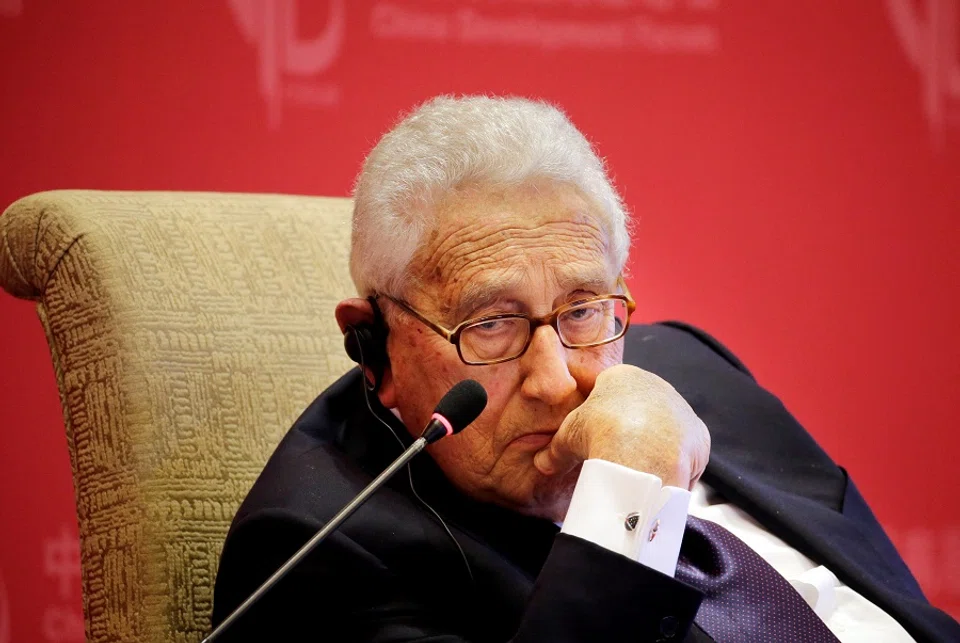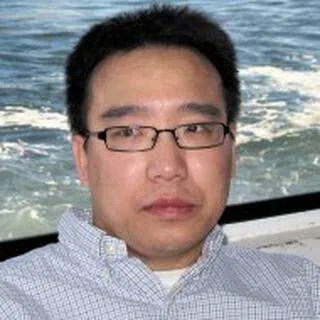Assessing Kissinger: It's not just about China-US relations
Academic Wu Guo notes that if Chinese academics in the West are unable to get out of their narrow-minded "box stuffed with Chinese-ness" worldview and stop evaluating individuals based on the sole criterion of improving China-US relations, it may be difficult to have a truly insightful global dialogue.

Passing away at the ripe old age of 100, Kissinger could be said to have lived a full life. In China, this might even be called a "happy funeral" (喜丧).
But as soon as he died, The New York Times published a strongly-worded commentary criticising the former US secretary of state. As far as I know, intellectuals from around the world generally view him in a negative light and believe that he was cold-blooded, self-serving, opportunistic and immoral.
It is no surprise that Chinese officials view Kissinger positively; he was wise and proactive in pushing forward bilateral engagement and ultimately, the normalisation of US-China relations, even if this was due to President Nixon's strategic decision to turn things around.
Surprising assessment from Chinese academics in the US
But what is surprising is that Chinese social scientists who have lived and worked in the US for a long time, and probably even become US citizens, have also enthusiastically jumped on the bandwagon to sing praises of Kissinger. But most of their assessments are generally limited to the very simple idea that Kissinger contributed to the improvement of China-US relations and therefore deserves to be honoured.
If this is the thinking of the average online reader or current affairs follower within China, that would be unsurprising, since Chinese officials have warmly received Kissinger countless times, and praise and commemorations have long become cliches.
I think that such an assessment further involves whether social scientists can detach themselves from the dominant rhetoric of their country of origin...

However, should English-speaking Chinese American humanities and social sciences academics - particularly historians who are most adept at historicising and contextualising history - repeat such outdated praises? And should they put up as an important conclusion, the naive and humdrum notion that "Kissinger and Zhou Enlai brought the two worlds of China and the US together in 1972, laying the foundation for China's subsequent reform and opening up"?
Taking the criticism one step further, it could even be argued that the meeting between Kissinger and Zhou (or more accurately, Nixon and Mao Zedong) was a geopolitical accommodation between both nations due to the geopolitical pressures of the time, and neither had considered nor foreseen the "reform and opening up" that came later.
At the same time, while the "correlation" (not "causation") between Nixon's visit to China in 1972 and China's opening up may indeed be linked and further interpreted by historians in hindsight, it might be a step too far to insist on giving Kissinger the credit.
Need to detach from Chinese mindset
I think that such an assessment further involves whether social scientists can detach themselves from the dominant rhetoric of their country of origin, as true independent thinking and spiritual autonomy is the most precious characteristic of scholars, writers and artists in the field of humanities and social sciences.
Here, I also do not think that Chinese academics who have lived in the US for over 30 years or who have become US citizens, should still be regarded, or regard themselves, as "Chinese scholars" in the true sense of the word, meaning one who has been living and working in China, and who holds Chinese citizenship.
Such a perspective not only simplifies Kissinger and makes him one-dimensional and flat, but also distances the values of Chinese scholars from the American mainstream and the world.

More importantly, academics who think and write in English - the global academic language - daily, should all the more use a global framework in thinking about and evaluating this complex and multifaceted American historical figure, and not assess him using a "box stuffed with Chinese-ness", as Taiwanese author Lung Ying-tai calls it.
Based on the praises I have seen so far, it may be easy for other non-Chinese readers to get the impression that Chinese American scholars do not care about how the American mainstream or people in other countries view Kissinger; as long as Kissinger was once involved in improving China-US relations, had indirectly contributed to China's subsequent reform and opening up, and had visited China time after time, regardless of the purpose of each visit, he is a saint who cannot be blasphemed.
Such a perspective not only simplifies Kissinger and makes him one-dimensional and flat, but also distances the values of Chinese scholars from the American mainstream and the world. It also seems to regard China-US relations as the most important thing on earth; and the only international relationship that exists, and China's reform and opening up (which should essentially be seen as the return to a relatively normal society from a state of extremity) as the only major event of mankind.

If Chinese academics in the West are unable to get out of this narrow-minded "box stuffed with Chinese-ness" worldview and stop evaluating individuals based on the sole criterion of improving China-US relations, it may be difficult to have a truly insightful global dialogue.
Thinking that mixes personal feelings with self-interest
Of course, I understand that the humanities and social sciences are fundamentally a study of humans and events and cannot be completely free of the projection of personal experience and values.
However, these academics should still avoid making this faux pax: first seeing themselves as the beneficiaries of reform and opening up, and the winners in life who have achieved the "American dream" as a result of their individual successes. Then, based on their personal experience, identifying with the fact that a German-accented Jewish immigrant like Kissinger succeeded brilliantly and achieved the "American dream", and further concluding that America's greatness lies in the fact that it helped Kissinger and also themselves achieve the "American dream".
Not only that, then grafting Kissinger's outstanding contribution to "China-US relations" and "China's reform and opening up" onto achieving the American dream, such that Kissinger's success has also indirectly created theirs as well. Or lastly, going one step further to conclude that Kissinger should not be criticised, but deserves to be honoured both in terms of China-US relations and on a personal level.
This reasoning makes some sense, but for it to be acceptable and be made public, it must not have originated from a social scientist, who should have better critical thinking skills and depth of thought than than the average person in mainland China.
Such "self-serving" rather than "public-spirited" thinking (in the sense that academia is a global public tool), and the fact that they are happy to be the echo chambers of China's domestic propaganda, demonstrate the narrow-mindedness and naivety of the Chinese American scholars...

Suppose a serious scholar does not rigorously evaluate Kissinger's legacy or criticise him out of his own gratitude for benefiting from "reform and opening up" and achieving the American dream; or if he treats Kissinger as a "godmaker" just because the latter stood up for US interests and self-interests as part of his long career, and helped to improve China-US relations and took part in various bilateral events.
Such "self-serving" rather than "public-spirited" thinking (in the sense that academia is a global public tool), and the fact that they are happy to be the echo chambers of China's domestic propaganda, demonstrate the narrow-mindedness and naivety of the Chinese American scholars who have long left a propagandistic environment, yet have not been able to better themselves or assess a historical figure from a global macro viewpoint using autonomous thought, independent study and impartial judgment.
This article was first published in Lianhe Zaobao as "基辛格情结的"美国梦"与"中国瓶子"".





![[Photos] Fact versus fiction: The portrayal of WWII anti-Japanese martyrs in Taiwan](https://cassette.sphdigital.com.sg/image/thinkchina/3494f8bd481870f7c65b881fd21a3fd733f573f23232376e39c532a2c7593cbc)